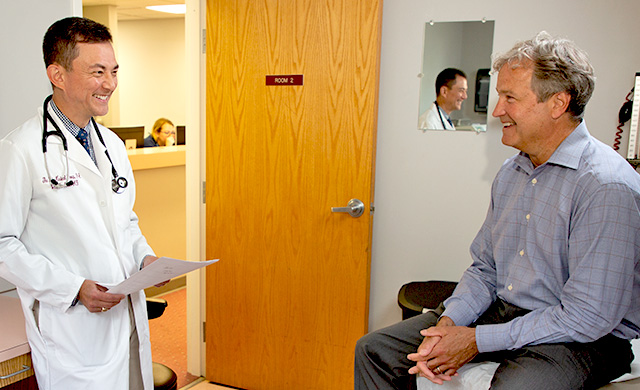
Our gastroenterologists are focused on digestive and intestinal health. When you’re affected by chronic heartburn, stomach pain, or digestive upset, don’t hesitate to make an appointment. We can help you manage many conditions including irritable bowel syndrome (IBS), gastroesophageal reflux disease (GERD), celiac disease, diverticulosis, and ulcers.
Celiac Disease
Celiac is a genetic autoimmune disorder triggered by consuming gluten, a protein found in wheat, barley, and rye. If you have celiac disease and eat foods with gluten, your immune system responds in a way that damages your small intestine and can cause intense discomfort.
We can check for celiac using a blood test (called an tTG-IgA test). Your doctor may also recommend a biopsy of your small intestine to confirm the diagnosis. We can then counsel you on effective management of the condition, including dietary and lifestyle choices to support your best health.
Diverticulosis
Diverticulosis occurs when small pouches (diverticula) develop in your digestive tract. When these pouches become inflamed or infected, the condition is called diverticulitis, which can cause constipation, diarrhea, abdominal pain, fever, and bloating. We guide you through treatment options include adding fiber to your diet, medications, probiotics, antibiotics, and surgery.
Gastroesophageal Reflux Disease (GERD)
GERD is caused by frequent acid reflux. It happens when a flap at the end of your esophagus does not close properly and lets stomach contents leak back up the digestive tract as high as your throat. We’ll first work with you to determine if your acid reflux and heartburn is GERD and then to find the right medication and diet to relieve your symptoms.
Irritable Bowel Syndrome (IBS)
IBS is a group of symptoms that affect your large intestine. The condition can cause stomach cramps, bloating, gas, diarrhea, and constipation. While it’s not dangerous, it can disrupt your life and be very uncomfortable. We’ll work with you to find the right medications, lifestyle changes, and counseling to help ease your symptoms.